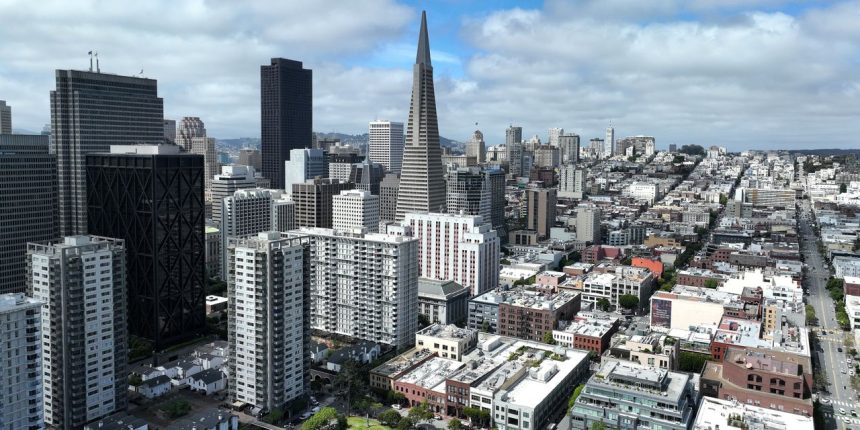Hex, a startup focused on data and artificial intelligence, is the latest tech company to bolster San Francisco’s reeling downtown district.
The company signed an 8,500-square-foot lease at 330 Jackson Street, a roughly two-minute walk from the iconic Transamerica Pyramid office tower, doubling its office footprint in the city.
“Finding a space that really worked for us was really quite difficult,” said Barry McCardel, Hex’s chief executive and co-founder, referring to the growing number of AI companies seeking office space in San Francisco. “We wanted a space that was already built-out, not a fixer-upper. It was also important that the space is where people would be comfortable commuting to and from.”
San Francisco’s recently desolate downtown has perked up lately, with foot traffic returning to tourists spots, cable cars and ferryboats. Public transit also has ticked higher as more workers return to office buildings and as the city works to keep streets cleaner and feeling safer.
Also see: Salesforce CEO Marc Benioff warns upcoming Dreamforce may be last in San Francisco
Real-estate firm Jones Lang LaSalle Inc.
JLL,
which facilitated the new 2.5-year lease for Hex, estimates there are more than 10 AI companies currently looking for a combined 800,000 to 1 million square feet of office space in San Francisco.
That’s cause for optimism in a city where landlords have struggled to fill office buildings. Of San Francisco’s estimated 3.9 million square feet of total office requirements, about a quarter is coming from AI companies, according to JLL.
“There’s a wave of interest,” said JLL’s Hillary Hogan. “It’s something exciting from a commercial real-estate perspective.”
See: After a wave of layoffs, tech is hiring for AI jobs
The boom of AI leasing activity comes at a critical moment for San Francisco. Office rents and property values have tumbled in the city’s financial core, prominent landlords with debt coming due have surrendered properties to lenders rather than wait out the storm, and a string of retailers, including Nordstrom Inc.
JWN,
recently closed marquee stores, due partly to low foot traffic.
That contrasts with fresh enthusiasm for AI technologies like ChatGPT, which helped push Nvidia Corp’s
NVDA,
stock on Tuesday to a record close and a $1.2 trillion market capitalization for the first time. Its corporate offices are about 45 miles southeast of San Francisco in Santa Clara, Calif.
While the Bay Area leads the world in venture-capital funding, San Francisco has been punching above its weight in terms of attracting AI startups, with 2.3 million square feet of office space in 2022, compared with 3.1 million square feet for AI companies in Silicon Valley.
Silicon Valley has long been a haven for later-stage tech companies hoping to strike it rich by going public. Unlike San Francisco, it doesn’t have a “CEO tax” on companies if top executives who reside in the city are paid at least 100 times the median salary of a local worker.
However, Mayor London Breed’s new $14.6 billion budget includes tax breaks for some small-and medium-size businesses in San Francisco and incentives for companies that moved away from the city to return.
Asking office rents in Silicon Valley were pegged around $72 a square foot for tenants with full-service gross leases, and nearly $77 a square foot in San Francisco, according to JLL.
For Hex, the new San Francisco lease meant having a place for its nearly 75-person staff, including remote workers, to gather, as more people return to the Bay Area in the wake of the pandemic. “You also have to be realistic. It isn’t going to be 2019 and you have the entire company in one room,” McCardel said, adding that for AI, “the center of gravity is happening here.”
Hex, which got off the ground in 2019, counts Andreesen Horowitz and Sequoia Capital as backers. It raised $52 million in Series B funding last year and has a smaller sublet office in New York City.
Check out: ‘San Francisco is not dead’: Not everyone is shunning the city’s reeling office market
Read the full article here




